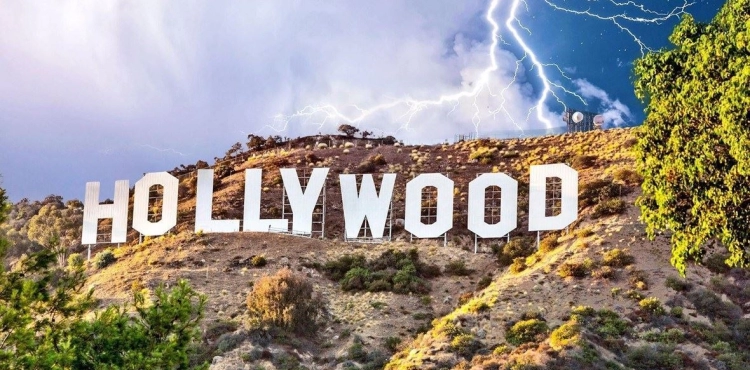Despite the initial agreement reached by screenwriters to end the strike that has paralyzed the American film sector for about five months, Hollywood is still far from emerging from its current crisis, as the confrontation between actors and studios continues.
On Sunday, the American Screenwriters Guild reached a settlement with the heads of major studios and streaming platforms.
This agreement, which includes “significant gains” in wages as well as protections to regulate the use of artificial intelligence, must still be approved by the union’s 11,500 members.
However, it is expected that this procedure will be a formality. The union previously indicated that it would allow its members to return to work before the end of the process.
This allows filming of news and entertainment programs broadcast during the night (the “Light Night Show”) to resume within two to three weeks, according to the specialized magazine “Variety”.
Despite this modest comeback, Hollywood remains largely at a standstill. The actors, represented by the SAG-AFTRA union, are still on strike and it may take several more weeks for this social dispute to be resolved.
Even after the actors return to work, it will certainly take months to get everyone back on set and make up for the accumulated delays.
"There are probably more than 1,500 productions that those responsible for them would like to launch as quickly as possible," Jonathan Handel, a lawyer specializing in the entertainment industry, told AFP.
When the union is given the green light to restart production, “they will all compete at the same time (...), which will lead to absolute chaos.”
He believes that the production process will not return to normal “before January or February.”
The settlement that the studios agreed with screenwriters includes increasing the minimum wage, paying bonuses to those who write highly-viewed series, even on streaming platforms, and guarantees regarding the use of artificial intelligence to create scripts without affecting their income.
Thus, the agreement overlaps with several requests submitted by the actors, and their union will reveal the details, before resuming its own negotiations with the studios.
But some of the actors' demands go beyond those of screenwriters, according to Handel.
The Actors Syndicate demands a greater increase in salaries, and an actual percentage of profits to be given to actors when the series achieves success, and not just a bonus.
Thus, negotiations are expected to be difficult, especially since studios know that what they provide to actors will serve as a benchmark for the industry's technical professions, whose collective agreements must be renewed next year.
"I think that basic salaries will be a major obstacle to agreeing with the actors' union in the coming weeks," Handel says.
The talks are also expected to cover topics specific to actors, such as remote auditions, a practice that has emerged with the Covid pandemic and has drawn widespread criticism from actors.
Despite everything, the agreement between the screenwriters and the studios opens the way to resolving the crisis.
Following this, the Actors' Union may meet with companies operating in the sector next week, for the first time since the actors' strike began in mid-July.
"Variety" magazine expected that "the end of the screenwriters' strike will accelerate the dismantling of the contracts that prevent agreement with the Actors' Union."
But even “if things go smoothly, which is an unlikely hypothesis, I think it will take two to three weeks to reach an agreement (...), that is, not before October,” according to Handel, who points out that things will take longer given the... “The ratification process will take another month.”
So, time is running out for studios, who want actors back on red carpets to promote year-end blockbusters, like Disney's new superhero film "The Marvels."
The return of actors is also necessary to ensure awards season: on television, the Emmy Awards are scheduled for January, while the film industry hopes to hold the Oscars on its traditional date in March.












